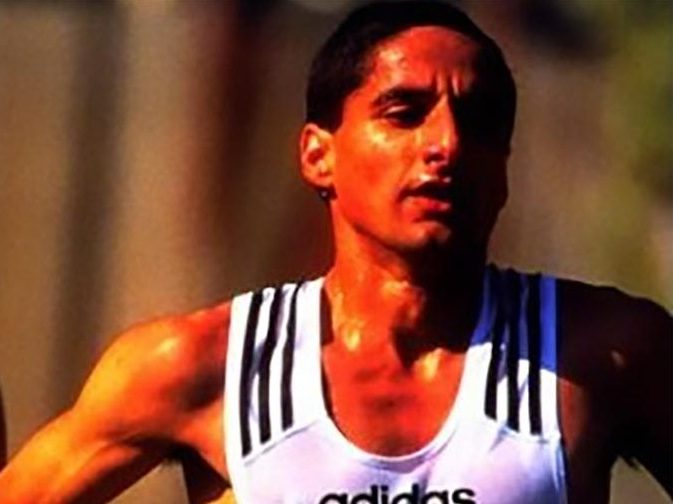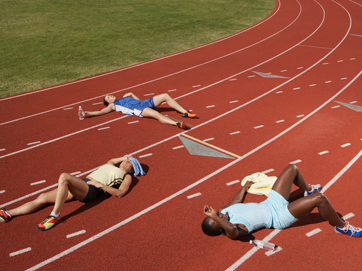Olympian Richard Nerurkar was Britain’s most successful marathoner of the 90’s with a string of incredible achievements to his name. According to his contemporaries he had a meticulous approach to training and racing.
I had the privilege of meeting Richard and having a very laid back run through Victoria Park a few years ago with a mutual friend (and talented runner) Hannah Walker. Richard has kindly answered a few questions below to give an insight into his training and racing approach. I can thoroughly recommend Richard’s excellent book ‘Marathon Running from Beginner to Elite’
Key achievements:
- won the 1993 World Cup Marathon
- 5th in 1997 London Marathon and 1996 Olympic Games in Atlanta
- 5th in the 1991 world championships 10,000m
- 3x National XC champion.
Personal bests:
- Marathon: 2:08:36
- Half marathon: 1:01:06
- 10km: 27:40:03
How did you get involved in athletics?
Through the school cross-country club.
Did you do any track?
Yes, at school, college and at senior level.
How did you progress/get into marathon running?
I moved up the distances from 5k/10k, always thinking that I would perform well at the marathon.
What would a typical training week in a build up to a marathon look like? (e.g. mileage/sessions etc)
An example of my build-up to the 1996 Atlanta Olympic Marathon is shown below (more detail is available in my book).

What sort of races do you like to include in a marathon build up and how far out from race day?
A half-marathon 6 weeks out and a 10-miler 3 weeks out.
How much rest and sleep did you get when you are in a marathon build up?
A bit more than usual; recovery was an important part of the training.
Did you follow a specific diet when training?
I believed in having a varied diet and tended to reduce fats and make sure I was getting enough carbs.
Did you complete regular strength and conditioning exercises (including mobility/technique drills and stretching)?
Stretching yes. Sprint drills yes when preparing for track races. I could have benefitted from more S&C work.
What role did physio / massage /osteo play in your training?
A very important role allowing me to avoid serious injury and train consistently.
Did you rotate your footwear for different sessions throughout the week?
I tended to have two pairs of trainers on the go at any one time.
Did you have any mental preparation strategies/routines when you are racing?
As discussed in more depth in my book, visualisation can help you feel better prepared for the challenges that you may face on race day. For example, you may want to imagine yourself running the marathon, staying relaxed and in control, or conversely hanging on with grim determination as fatigue sets in. The final few days leading up to a race are a good time to imagine yourself running your marathon and to anticipate the different situations that you are likely to confront. The better prepared that you are for the situation the more likely you are to cope when the situation arises, such as how to react at the halfway stage when you begin to feel some tiredness in your legs or what will give you the determination to dig deeper into your mental and physical reserves in those final few miles of the marathon.
I hope that you found Richard’s training insight interesting.
Please get in touch if you have any injuries or niggles as clinic is now open for both face to face and online appointments. I’m also excited to announce that shockwave therapy is now available at The Run-Fast Clinic.
Also, if you’re interested in improving your performance and would like to be connected with a UKA qualified coach, then get in touch with me at [email protected]
Happy running.
Cheers
Scott



